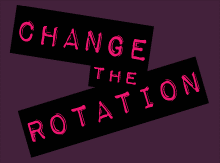Interview with Joe Vickers of audio/rocketry
Steve O - November 1, 2016Edmonton’s audio/rocketry are releasing their first record in five years this week, and are following it up with a tour across Canada, with a stop down here in the States too. To celebrate the occasion, I talked to frontman Joe Vickers about the new record, the Midwest, music, travel, hockey, and dinosaurs. And more hockey. You know, normal stuff for any conversation I have.
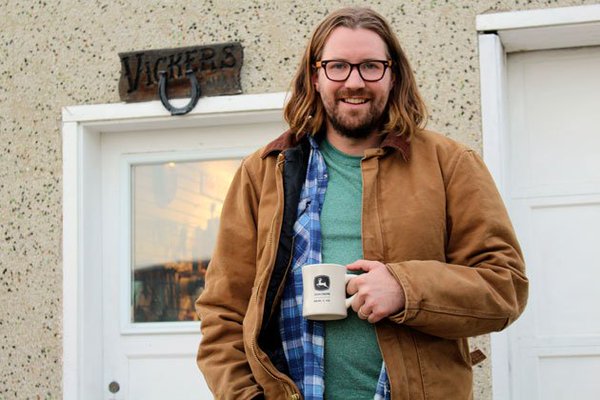
Steve O: Hey, Joe. How’s it going in Edmonton?
Joe Vickers: Hey, it’s overcast and foggy. I farm with my dad; in the spring and summer we’re grain farmers. I grew up on this farm, and for the last 10 years I’ve been farming, that’s my main source of income. And this year, we’re still harvesting, which is wild. We’ve never been this late in the season ever before, but we had snow like two weeks ago and that set us back. I’m kinda stressed with the tour that’s happening next week and I don’t even know if we’re going to be done.
SO: Yeah, especially with you being that far north, this is really late into the fall.
JV: Yeah, normally we’re always combining end of August, September for sure, so when it stretched into October, that was kind of bizarre, but now it’s the 28th.
SO: So, it’s been a while since the last audio/rocketry record, (Piloting a Vehicle of Audible Expression in 2011), how long have you been working on some of these new songs?
JV: Well, there’s a couple of the songs on the record that were written shortly after the last album and had just been lying dormant. We toured Piloting for a couple years, then I moved to Portland, Oregon where my wife’s going to school, so I started spending my winters with her. I moved away from Edmonton, so that kind of meant us not rehearsing or jamming as much either, so I think that can account for that separation in releases. But to answer your question, there were a number that were around since 2011 and a number that were written just months prior to us recording.
SO: The songs that have been around for a while, did you ever play any of those live?
JV: Yeah, we did. And a number of them were focused around the banjo too, back when that was a primary instrument of the band. But you got a lot of folk rock bands that hit the mainstream, and I think that a listener kinda got beat over the head with the banjo, and we decided it would be the right time to depart from those sounds, and go for a more rock and roll, punk rock record. This band has always been pretty loud, acoustic-centered band, so I think it was just a natural progression.
SO: In the years between, you put out a handful of solo records under your own name. With being in Portland half the time, did you ever think about retiring the audio/rocketry name and going solo?
JV: No, what was nice about being able to record some solo songs is I was able to remain creative while being apart from the band. And at the same time all the other members were in other groups as well. Jerome and Matt play in band called Worst Days Down (worstdaysdown.bandcamp.com), and Blair and Jerome play in another group, Desiderata (desiderata.bandcamp.com). I think it was a good opportunity for all of us to explore other creative avenues and then be able to regroup when the time was conducive to work on these songs together. And, in the past I’d bring a lot of the songs and skeletons to the band and we’d work on them for a very short period of time and then hit the studio, we intentionally made it that we would sit down and rehearse the songs and really hash them out together for everybody to really put their own stamp on the songs, and I feel like this album is the most collaborative and a record that really allows all of us to shed some light on the songs, creatively anyways.
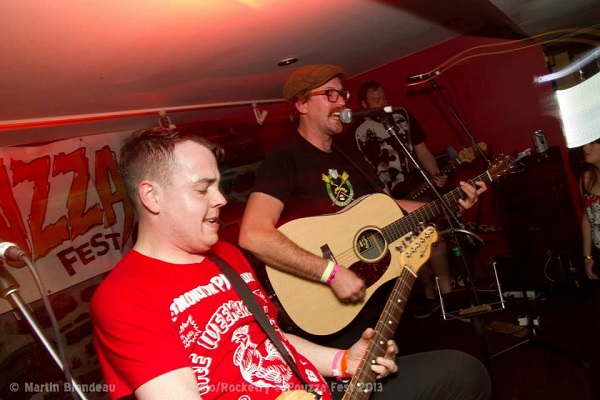
SO: So I’ve listened to the new record a handful of times and, looking back at Piloting, I really sense this theme of friendship and camaraderie. With Eastward + Onward, it’s pretty obvious there’s a theme of travel and exploration on there. Is there any theme that pops up on the new record?
JV: Yeah, I think the main theme for this record is the idea of progress, in both a sense of interpersonal relationships and progress and development in the sense of geography. Edmonton is the base of this band, and is represented in our songs, and seeing what Edmonton is going through right now, with the downtown gentrifying, that definitely plays on that idea of development and progress. But what really matters is what are the effects? What are the consequences? Other themes that are included on this record are responsibility. Look at us right now, we’re almost all 30, what does it mean to be responsible—a responsible friend, partner, responsible citizen in our colonized country. Were there any themes that stood out for you?
SO: No, at least not yet, but a lot of the things I do when I’m listening to records, is I always like reading along with the lyrics. Piloting is a record where I really picked up on that theme a lot more when I was reading along. And without being able to read along with the words, there’s nothing really jumping out just yet.
JV: I’m totally the same way too. I need to have the lyrics in front of me sometimes, to be able to interact with the song more in depth. Even in the lyrical content, I’ve been reflecting on previous audio/rocketry songs, comparing them with this new album, and one of my intentions was to say more with less. Especially the earlier songs, I had a really bad tendency of just writing stream of consciousness and having these four, five, six minute long songs with so many words. I guess that played into the way the melody was delivered, but I wanted to be more thoughtful with the words and try to say more with less.
SO: So this is record number four. Is there a reason you went with a self-titled record as record number four?
JV: Yeah, it comes back to the creative process being more collaborative. I had a few titles in mind, but the guys wanted to do a self-titled record. And I let that idea sit with me and I really came around to it. Those first three albums, I think that’s a pretty good representation of where we’ve been the last ten years. This is kind of a new album, I’d say sonically we sound different; this is a good time to have this renewal. I feel like a self-titled record works more into that.
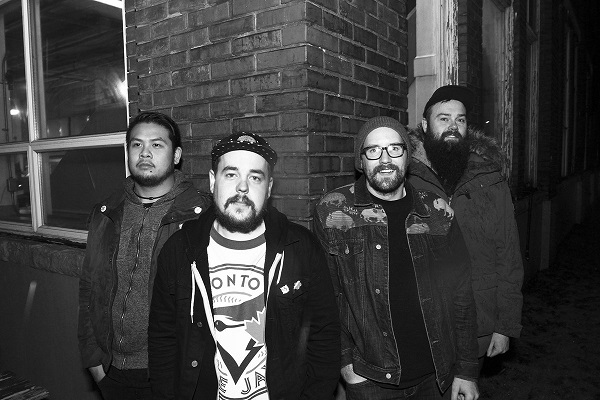
SO: You mentioned earlier that you work the land. Do you think that gives a different outlook on everything than some of your contemporaries, or how has that interaction with the environment influenced your songwriting?
JV: Yeah, it’s a big part of my creative process. Being able to work the land, I’ve got a pretty intimate relationship with it and while I’m working out in the fields it allows me to be very reflective. I’ve got this connection with the environment, but songwriting and playing in bands allows me to be connected with people. Audio/rocketry songs are very high into geography, and I would say have a prairie voice. So I think it can be related back to being a farmer for sure.
SO: Being from the Chicago area, there’s that Chicago sound that started with bands like Naked Raygun up through today with Lawrence Arms and Alkaline Trio, and I get where you’re coming from with that mindset, being up in the prairies there, I can totally see how that influences things.
JV: I wonder if there’s any connection with the Midwest. Cause it very much has that blue-collar feel, I wonder if that sparseness of the Midwest plays into a similar connection. I consider Western Canada, the prairies at least, similar to the Midwest. I look at Matt, the bass player in our band, his favorite bands are all Midwestern punk bands; he really loves that sound. I wonder if that somehow plays into our identity too. Wouldn’t you say elements of isolation too, like being in the middle? I think being in isolation breeds creativity. You’ve got the cold winters to deal with, nothing better to do than just gather in a basement somewhere and work on your art.
SO: We joke about all the black metal bands coming out of Norway, there’s really nothing to do in the middle of winter up there than hang out in your basement and write one-man black metal records.
JV: Haha, you’re right. What’s crazy is, I played some shows in Norway three years ago and I was fascinated by their Norwegian folk music. It was a lot of minor keys and a lot of weird time signatures and I just had this ‘ah ha’ moment where I realized, ah, that’s why metal resonates in this part of the world, given their mythology and their folklore and the music. Just came to mind when you mentioned black metal.
***
SO: So what’s the scene like up in Edmonton?
JV: It’s fantastic. It’s very supportive. I really wanted to move to Edmonton to go to school with the idea of starting a band. For me, before moving there, I always felt like Edmonton had a more thriving music scene, mostly because of my own experience. There’s a lot of bands that are doing different things; it’s not a one-trick pony town, there’s a lot of really creative individuals, and a lot of people who love to go out and support live music. So it’s a really ideal home base to be a band. I mean it’s bad geographically, back to what we were talking about being in the middle and isolated, it makes it difficult for touring. But that’s why there’s such an appreciation for live music whenever a band does come through town, people come out in droves to support. Or even, I guess, the reason why local music thrives so much; it’s what you rely on, you rely on the local scene.
SO: I was looking at some of the tour dates, and you’ve got some pretty long drives between shows. Do you have a playlist of records you want to listen to while you’re driving around?
JV: What’s fun with this group is we all listen to very different music and we have this policy of whoever’s driving gets to DJ. I know for myself, I’ve got a number of records I’ve been listening to right now that I’ll probably show the guys. And that’s what it is, an opportunity to show each other stuff that we’re into. So for me, I’ve been really enjoying the new John K. Samson record, Winter Wheat, and with Winnipeg being one of the first stops, I look forward to listening to that album while we drive through the prairie. But we’ve got a tape player too, and it’s always exciting stopping at resale shops or record stores or thrift stores and picking new stuff up along the way.
SO: I just saw the other day a video for "Postdoc Blues," a song off John’s new record, and it had this really cool animation throughout the whole thing.
JV: Yeah, I saw that the other day too, it’s pretty cool. I believe they had the Leap Organization as a part of it, or maybe one of their affiliates did it, but I agree with you, it’s a really awesome video. He’s an incredible songwriter. One of my favorites, the way he’s able to present all these different viewpoints and voices. So if you haven’t given the record a shot, I’d definitely give it a chance.
SO: Yeah, I’ll have to give that a listen sometime. Are there any other records or bands you’ve heard, where you’re listening to it, and you’re like ‘oh, I want to do something like that’?
JV: Yeah, I’m very attracted to singer-songwriters. I’ve always been a big fan of the Weakerthans, John K. Samson, and I agree with you, it’s like ‘oh, you can do this with a song!’ Using it like having records as mentors. I think Jason Isbell’s Southeastern, when I heard that record for the first time, really blew me away. I’m a big fan of his songwriting as well. Somebody that’s an older songwriter that I’ve been really into the past few years is Kris Kristofferson, his ability to conjure up many images with his words.
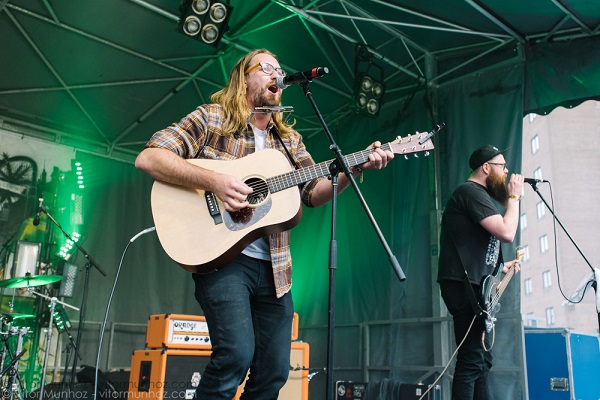
SO: Do you have some favorite places to go when you’re on tour? Do you get to do much sightseeing, or is it drive from one city to the next?
JV: Yeah, the way that this tour is set up we’ve got a lot of driving. It’s the way that we’re able to fit this tour into all of our lives, which has made it kind of a shorter tour. We’re all working around our work schedules. So it’ll be a lot of driving, but we’ve got a 1987 Dodge Camper van that we travel in; it’s this charming vehicle, there’s a bed in the back, a fridge, a stove. Just traveling in that van is pretty amazing. So I look forward to just getting back in the van and spending time with my friends and bandmates. But when we’re on tour, there’s a few staple places, like Chez Ashton in Quebec City for late night poutine. It’s not even the best place, but it’s just a 24/7 fast-food poutinery. It’s almost like a tradition at this point. There’s some neat things, like we’re going to be in Ottawa the day after the Remembrance Day Ceremony, I don’t think we’ll ever be in town for something like that again, so we should probably check that out. There’s a bunch of museums in these places that we’ve never gone to, and I’d like to do that, but sometimes there’s just not enough time. I’d like to say that we’re hitting up these museums, but it’s not likely.
SO: I will never understand why poutine has not taken off down here in the States.
JV: Haha, yeah, I don’t know either. There’s some places out here in Western Canada that offer it, but it’s not the same. I guess we have our other, late night, fast food places, like Donair, which is something you find in either Halifax or Edmonton. They’re like a kabob place, it’s kind of a take on a Turkish kabob, but was invented in Halifax. And I wonder why that hasn’t taken off everywhere.
SO: So why "Hallelujah Halifax"?
JV: Well, that was a song that was written after my first tour out east. I’d always had these dreams of touring across Canada and making it to Nova Scotia and Halifax was the last tour spot on that tour and it was an exciting tour. My first opportunity of playing across Canada and a lot of excitement by the time my friend Rusty and I reached the city, that phrase occurred to me and the song was written. After we recorded that song I was nervous about how people in Halifax would take that song, are they going to find this super corny and unbearable, but we’ve done a lot with a bunch of these punk rock kids that would tour across the country as well, and they said whenever they cross Macdonald bridge from Dartmouth to Halifax they’d always sing that song, which is one of the neatest compliments we’ve ever been given for that tune.
SO: I imagine that’s a song you have to play every time you’re in Halifax now, right?
JV: Absolutely, yep. And you know what, with that tune, for the longest time because of the job opportunities in Alberta because of oil and gas there’s a lot of Maritimers that have migrated out west to work, either permanently or temporarily. So the song generally goes over well in Alberta as well, where it would remind people of home, which is a neat thing too.
SO: I went to grad school in Upstate New York, and one of the trips I took while I was out there was I went up to Saint John and Fundy National Park and did a bunch of hiking up there. I listened to Eastward + Onward a lot on that trip, because that’s exactly what I was doing.
JV: That’s really cool. It still blows my mind that how, somebody like yourself, in a different part of, well in a different country, would be able to stumble across our music and the songs mean something to you in some way and that you’re able to do some traveling along the East Coast, and be able to have some tunes to accompany the trip. Songs mean something more after something like that too.
SO: Yeah, it’s identifying a song with a place and a time.
JV: Music has a beautiful way of representing times now or bringing you back to it. Given the time that you first interact with a song, it can transport you back to certain places too.
***
SO: So let’s talk about another important topic here. Being from Edmonton, are you one of these long suffering Oilers fans?
JV: Oh, you know what, Matt he’s a long-standing, suffering Oilers fan. And he’s pretty happy with their start so far this season. But there’s been a lot of pain over that franchise for the last number of years. But I grew up between Calgary and Edmonton and always thought it was pretty special to have two NHL teams, and I love hockey, it’s my favorite sport, so I like them both. I might like the Flames a little bit more, because that’s who my dad rooted for and we were just a little bit closer to Calgary, but I like them both equally, and I follow them both.
SO: My dad’s from Detroit, and I grew up in Chicago, and the Blackhawks-Red Wings…
JV: That’s a rivalry.
SO: It’s akin to that Oilers-Flames rivalry. So I kinda grew up in that weird situation, where I kind of like both of these teams.
JV: Yeah, rivalries are a funny thing. Like I understand why they exist, especially when there’s that proximity. But there’s definitely people that take it too far. And I’m okay with just being in the middle of it. Being neutral. But it’s funny, you don’t play a show in Edmonton until the game’s over. Maybe if it’s a weekend show and you got some out of town bands, the show will get going, but if it’s a weeknight show, you gotta wait for the game to be over.
SO: Haha, that seems like such a Canadian thing though. “Oh wait guys, we can’t start until the hockey game’s done.”
JV: Haha, yeah, it’s like, “oh, going to overtime, gotta push the set back here, just another 10 minutes.” It’s a reality now.
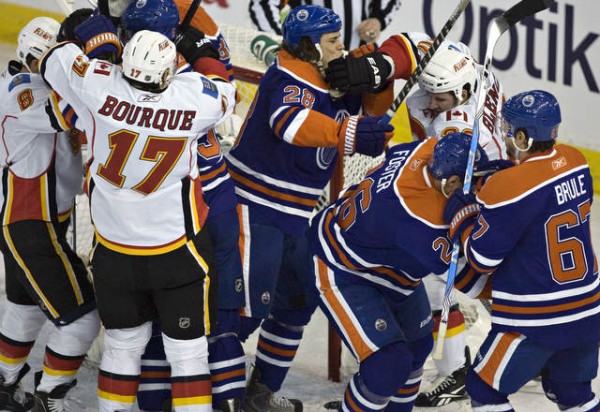
SO: That’s awesome. I find it really weird that guys like Connor McDavid and the kids coming in now, were born in the year I distinctly remember watching games.
JV: Oh, I know. Well that would’ve been, like ’97. When did the Red Wings win the Cup?
SO: The Red Wings won in ’97 and ’98.
JV: That’s what I was thinking. That was back with like Shanahan and Osgood and Yzerman. That was a time to be a Red Wings fan.
SO: Yeah. The unfortunate thing is I’m also a huge Sabres fan, and their trip to the Stanley Cup in ’99 did not go as well as those Red Wings ones.
JV: Oh right. Yeah, cause that would’ve been when Hasek was the goaltender. Wasn’t there a call that was a controversial crease call?
SO: Yeah, it was the skate in the crease on the winning goal.
JV: Yep, I remember that. It’s funny spending time in certain places, different countries, you see how sports; it’s very much like American football is a big to-do in certain parts of the US, but it’s always special knowing that other people share that same love of hockey. It’s special for me anyways.
SO: Yeah, it’s an instant connection.
JV: Oh yeah. I was playing a show in Hungary, and this one guy is like, ‘You’re Canadian, you love hockey, don’t you?’ Haha. He’s like, ‘well I never really watched it, but I played NHL ’98 or ’96, and it was the only computer game he had, and he knew all of the players’ names just from that sports game from that one year. It was pretty phenomenal.
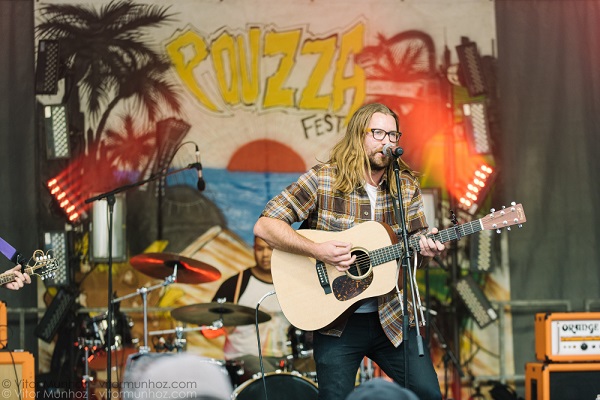
SO: Wow, that’s really cool. So on the topic of hockey, you’re originally from Drumheller, and on Valley Home, one of your solo records, you’ve got a song about Drumheller winning the Allan Cup. Do you want to talk about what that is and why that’s important? There really isn’t anything comparable to that here in the States.
JV: Well it was the championship title for seniors hockey across Canada, it’s a national trophy, and Drumheller, back throughout the 20th century, the hockey team in town, it was revered. It was more important than any NHL club at that time. You had these, more or less, they weren’t professionals, but they were half-time. They would work, but they were also on the team as well. And the Miners were a big unifying force in Drumheller, because it was a coal mining town; you had immigrant workers from all different kinds of ethnicities and hockey was the game that brought everybody together. And when they won the Cup, in 1966, that was huge. It was really, really huge for the town. I grew up playing hockey in Drumheller, and you walk into the arena and there was just all these showcases and black-and-white images of these old players that were members of the Miners back in the heydays. And you could just feel like something special had happened back in the day. It was cool being in a small town of Drumheller, we’re hovering around the six or seven thousand population margin, it has an arena that could fit about half the town. It has bleachers that go right around, so it felt like a big time arena for such a small town. I think that probably lends itself to sort of the imagination of times back when they were the championship club in town. And I always wanted to, being a fan of the game and being a hockey player for most of my life, I always wanted to write a hockey song, but found that that’s kind of a difficult task or it could come off hokey. So I felt the best way of writing a hockey tune was to relate it to the Miners.
SO: Yeah, I’ve got a mix CD that I leave in my car that I’ve titled Up the Pucks, and it’s all punk songs that relate in some way, no matter how much of a stretch, to hockey. It’s a lot of the Hanson Brothers and the Hextalls.
JV: Oh, that’s great. There’s a great band in Calgary called the Hockey Fights and they put on old jerseys and bloody their noses when they play and it’s all hockey related tunes as well.
SO: It’s a cheesy thing, writing punk songs about hockey, but it seems very fitting at the same time. I’ve heard about Drumheller before because of the Royal Tyrell Museum, which is a pretty well renowned paleontological museum. Is that like a source of pride for the town to have such a big, famous museum?
JV: Yeah, oh, it’s the main tourist attraction in the Drumheller valley. We’re a sleepy town throughout the winter and then, come summer time, it is really a bustling, busy tourist town and a lot of that is because of the paleontology museum that you’re talking about. And, it definitely is a source of pride, but at the same time it’s just a part of the town. We’ve got all these funny dinosaur ceramic statues everywhere in town and to an out-of-towner, it would probably seem like a sort of alarming thing to come around this corner and there’s this big cartoony T. rex, which you think would be alarming, but when you grow up with that around you it’s not unusual, it’s just a part of the town.
SO: That sounds incredible.
JV: Yeah, but what is really great is we’re in the Badlands and the geography is pretty stunning. It’s pretty great to go hiking in the hills, and if you’ve got a keen eye or looking in the right place you can find different fossils and dinosaur bones if you’re lucky.
SO: Yeah, a couple years ago I went out to Montana and dug up some dinosaurs out there, and I imagine the landscape is virtually the same as you go north there, just those Badlands.
JV: You know, I’ve never been there in Montana, but since it’s just due south of us, I wouldn’t be surprised that it’s the same.
SO: So, on the topic of dinosaurs, do you have a favorite dinosaur?
JV: Yeah, my favorite dinosaur is one of those ceramic statues I was telling you about. It’s a T. rex, and somebody painted him up in a bowtie and tuxedo, and I’d like to know how he tied his bowtie, haha, with arms that don’t reach his neck. That’s my favorite one.
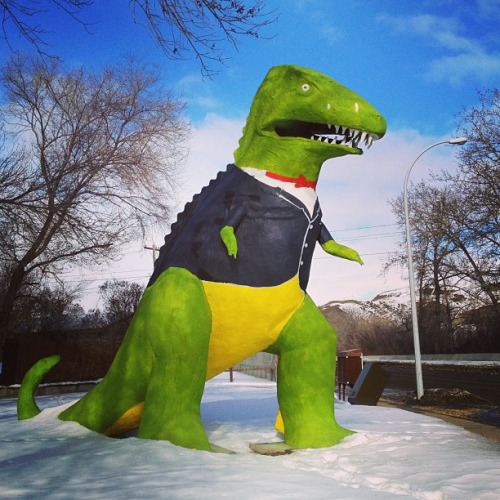
SO: That is probably the most perfect answer you could have had for that.
JV: I like those, the one that has a big forehead, they used to bash heads, like mountain goats, I don’t remember what they’re called [Pachycephalosaurus], but their skeletons are really bad ass and it looks like they have pompadours. So that and bowtie T-Rex.
Big thanks to Joe for taking the time to do this. Be sure to check out audio/rocketry on Bandcamp and Facebook. Dates for their upcoming tour can be found here. So go see them live.
